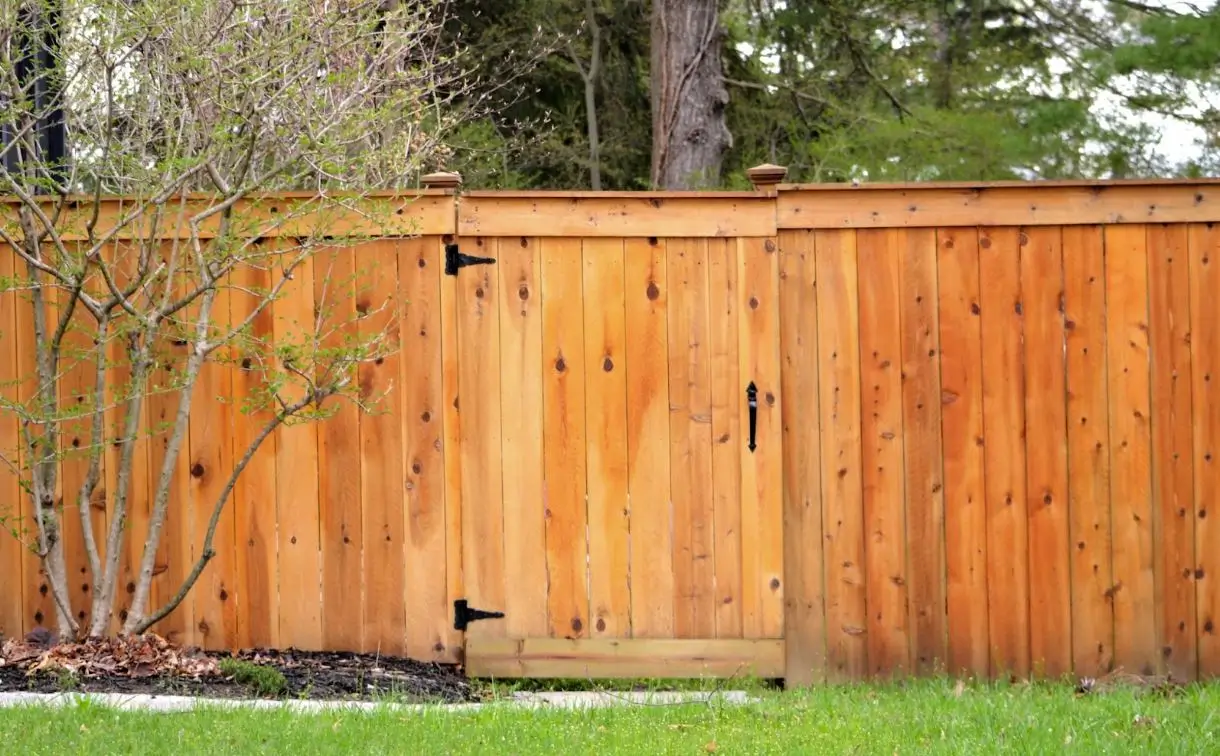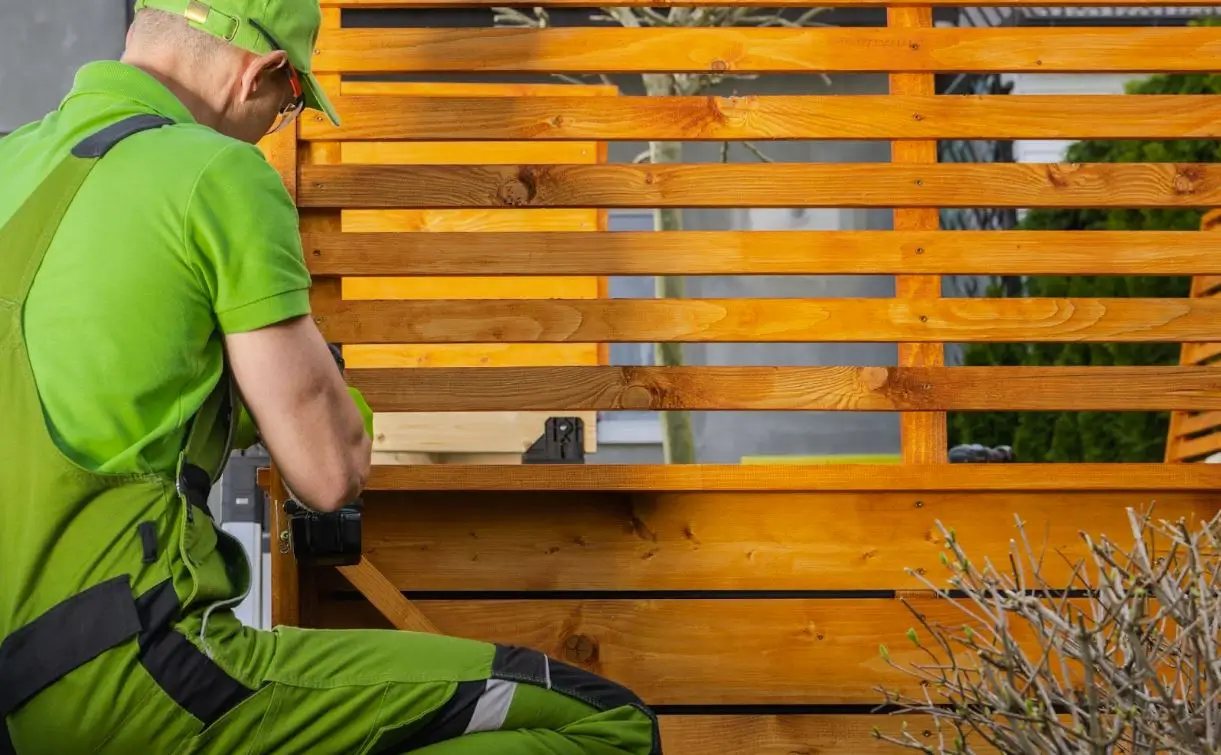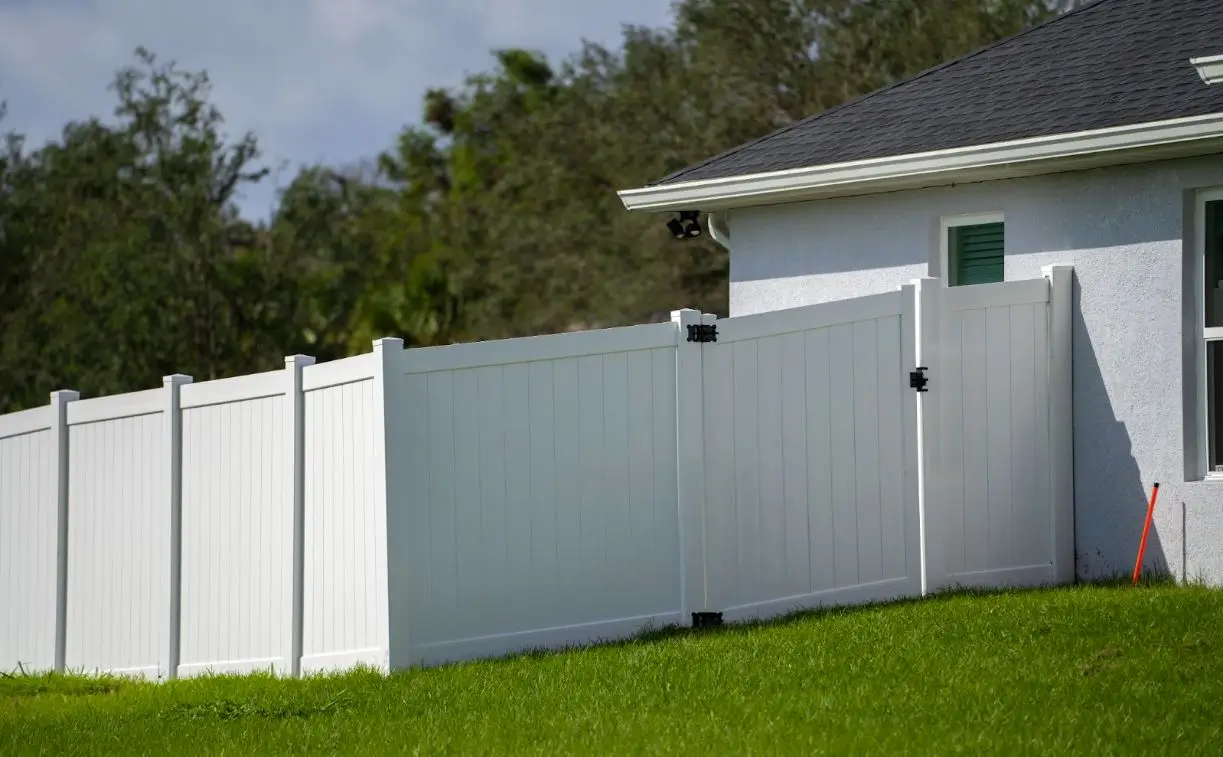
Installing a Fence: DIY vs Hiring a Professional Contractor
A fence is essential to any property, offering security, privacy, and aesthetic appeal. Custom fences can provide a unique design tailored to your preferences, enhancing your property’s look and feel. The decision to install a fence is not a simple task. Homeowners must decide whether to handle the installation or hire a professional contractor. Both options have benefits and challenges, and it’s essential to understand the pros and cons of each. The final decision depends on several factors, including budget, skill level, time constraints, and the desired quality of the fence.
DIY vs. Professional Differences in Installing a Fence
Installing a fence can significantly improve your property. A fence not only adds privacy and security but also boosts your home’s curb appeal. Deciding whether to install it yourself or hire a professional contractor is essential. Both options have advantages and challenges, and understanding these differences will help you make an informed choice. Your decision can impact your fence installation’s cost, time, and quality. It’s also worth considering the environmental impact of your chosen materials, as some options may be more sustainable than others.
Cost
DIY fence installation offers a cost-effective solution by eliminating the need for professional labor. You only need to cover the materials and required tools, making the project more affordable. However, DIY installation often comes with hidden costs, such as potential mistakes that might need repairs. A professional contractor typically charges more, including labor and expertise. Additionally, contractors often have access to discounted materials, making their pricing more competitive than it initially appears.
Time Commitment
Installing a fence yourself can be lengthy, especially if you’re inexperienced or unfamiliar with the task. DIY installations often take several days or even weeks, depending on the size and complexity of the fence. With a busy schedule, this time commitment can be overwhelming. Hiring a professional contractor allows for faster installation, as they have the necessary skills and tools to do the job quickly. A contractor can typically complete the installation in a fraction of the time it would take, relieving you of the stress and time commitment.
Skill and Expertise
One of the most significant challenges of DIY fence installation is the need for skill and expertise. Ensuring the posts are set correctly, the panels are aligned, and the secure fence requires knowledge and precision. Mistakes can occur if you’re not experienced, leading to delays or costly repairs. A professional contractor with years of experience knows the best techniques to ensure your fence is installed correctly. Their expertise helps prevent mistakes, resulting in a stronger, more durable fence.
Equipment and Tools
You’ll need to purchase or rent the right tools for a DIY fence installation, such as post-hole diggers, levels, and possibly even cement mixers. These tools can be expensive, especially if you don’t already own them. On the other hand, a professional contractor comes equipped with all the necessary tools and equipment, which they use regularly and are suited explicitly for fence installation. Hiring a contractor saves the cost and hassle of renting or purchasing tools.
Long-Term Durability
Proper maintenance is crucial for the longevity of your fence. Regular inspections, cleaning, and repairs can prevent minor issues from turning into major problems, ultimately saving you time and money. While a DIY fence can undoubtedly serve its purpose, it may not be as durable as one installed by a professional contractor. Inexperienced installations might lead to problems, such as improperly set posts or uneven panels, which could cause the fence to weaken over time. Professionals, however, have the expertise to ensure your fence is sturdy and long-lasting. They use the right materials and installation techniques to ensure the fence can withstand the test of time and weather conditions.
Time and Effort
Installing a fence yourself is time-consuming, especially if you lack experience. It requires work hours, including planning, digging, setting posts, and aligning panels. Depending on the project’s size and the terrain’s complexity, this could take days or weeks to complete. A professional contractor, however, can complete the job much faster, thanks to their expertise, tools, and experience. If time is a factor in your decision, hiring a contractor will save you significant effort and allow you to focus on other tasks.
Local Regulations
Building a fence may require permits or adherence to local zoning laws in some areas. DIY installers might not be aware of the legal requirements in their area, which could lead to complications or fines. Professional contractors are familiar with local regulations and can handle the paperwork and permit process on your behalf. They are also well-equipped to deal with any obstacles due to zoning restrictions. Hiring a professional ensures your fence complies with all legal requirements, avoiding potential issues in the future.
The Timeline for Installing a Fence DIY vs. Hiring Professionals
The timeline for installing a fence varies significantly depending on whether you choose a DIY approach or hire professionals. Each method has unique factors influencing how quickly the project can be completed. Considering the complexities of the task, the tools required, and the expertise needed, the differences in project duration become clear. A detailed look at these distinctions helps homeowners decide which approach best suits their needs and expectations.

Project Planning and Preparation
Professional services typically streamline the planning phase with pre-determined processes and resources, allowing work to start promptly. DIY projects often take longer to plan due to researching materials, obtaining permits, and learning necessary techniques. Professionals can bypass delays by sourcing quality materials and pre-coordinating delivery timelines. During the preparation stages, DIY installers may experience setbacks due to trial and error. The professional option often ensures smoother preparation and a shorter waiting period.
Tools and Equipment Access
Professional fence installers come equipped with specialized tools, eliminating the need to rent or purchase equipment. DIY projects might face delays if tools are unavailable or require sourcing from multiple locations. Efficiency with professional-grade tools often results in quicker project completion than standard household tools. Tool mastery also reduces time spent on adjustments or redoing work. The availability of advanced equipment gives professionals a clear timeline advantage.
Installation Process
Experienced professionals can complete the installation process faster due to their expertise in fence construction techniques. DIY installers often face a learning curve, which can slow progress, especially on more challenging terrains. Professionals work in teams, enabling them to handle multiple installation steps simultaneously. DIY projects might require additional time for troubleshooting unexpected challenges, such as uneven ground or weather disruptions. The professional route often ensures consistency and a more predictable completion schedule.
Inspections and Adjustments
Professionals have experience meeting inspection standards and avoiding potential delays due to non-compliance. DIY installations might require additional time to rectify errors discovered during inspections. Adjustments and final touches are typically faster with professionals due to their familiarity with project requirements. Inexperienced DIYers may take longer to meet necessary standards, extending the timeline further. Professionals generally ensure quicker project sign-offs.
Overall Project Completion
Professionals can complete an average fence installation in days, while DIY projects often take weeks, depending on complexity and the installer’s availability. The coordination of resources, expertise, and time management gives professionals an edge. DIY projects may face frequent interruptions due to personal schedules or unforeseen challenges. A professional installation offers a clear timeline and minimizes downtime. For homeowners seeking efficiency, professionals often provide the fastest route to completion.
When to Hire a Pro for Installing a Fence
Deciding between a DIY installation or hiring a professional can significantly impact the quality and efficiency of the project. While taking the DIY route may seem cost-effective, there are clear situations where hiring a professional is the better option. Recognizing these signs can help you make an informed decision and ensure your fence is installed correctly and safely.
Lack of Experience or Expertise
If you are unfamiliar with installing a fence, hiring a professional ensures the job is done correctly. A professional has the necessary experience and skills to handle all aspects of the installation, ensuring proper alignment, sturdy posts, and secure materials. Without the right expertise, you risk making costly mistakes that could affect the fence’s durability. For peace of mind and a quality result, it’s better to trust experienced professionals, ensuring you feel secure and confident in your decision.
Complex or Challenging Terrain
If your property is on uneven terrain or includes obstacles like trees, rocks, or other structures, installing a fence can become challenging. Professional contractors have the tools and techniques to navigate these issues and ensure the fence is stable and securely installed. With DIY projects, difficult terrain can lead to delays, frustrations, or a less-than-ideal outcome. Hiring an expert ensures the project moves smoothly, even in challenging conditions.
Tight Deadlines
Hiring a professional contractor is wise if you have a tight timeline or need a fence installed quickly. Professionals can complete the job much faster due to their experience and access to the necessary tools. DIY projects often take longer, especially if you’re working on the installation after hours or during weekends. To meet deadlines efficiently, contractors can bring speed and expertise to ensure the job is completed within your desired time frame.
Local Permits and Regulations
Fencing projects often require permits, especially in certain areas with strict zoning laws. Professional contractors are familiar with local regulations and can help ensure your installation complies with these requirements. Attempting to navigate local building codes alone can lead to mistakes or delays, especially if permits are needed. A professional contractor handles all the paperwork, ensuring that your fence is legally compliant, which can save you time and avoid any legal issues. It’s also important to consider the legal aspects of fence installation, such as property lines and neighbor agreements, to avoid potential disputes.

Choosing the Right Option for Fence Installation
When installing a fence, deciding between DIY and hiring a professional depends on your needs and resources. DIY projects can be more affordable but require a significant investment of time and effort and a certain level of expertise. On the other hand, hiring a professional contractor guarantees a faster and more efficient process, ensuring a high-quality result. Professionals bring the right skills, tools, and experience, providing peace of mind that the job will be done correctly. Ultimately, the best option depends on your priorities—budget, time, or the long-term durability of the fence.
Visit our HB Fence, Decking & Construction blog for valuable information to help you improve your property.



4 Comments
88nn01
February 14, 2025
Spotted 88nn01 online. Not sure what it is, could be interesting! Has anyone used it before? Share your thoughts! Worth a look: 88nn01
99abgamelogin
February 14, 2025
Tried logging into 99abgamelogin the other day, was pretty smooth. No issues getting in, gameplay’s decent. Give it a shot if you’re looking for something new. Link here: 99abgamelogin
playtime8
February 14, 2025
It’s smart to review historical data before playing – seeing those RTP metrics can really help strategize! Just remember responsible gaming practices. Considering a platform? Check out playtime app download for options, but always prioritize safety!
spin ph
February 14, 2025
Interesting read! Seeing more platforms like spin ph club emerge shows the growing digital entertainment scene here. Secure access & fast transactions are key – verification steps are smart for responsible gaming! 🤔